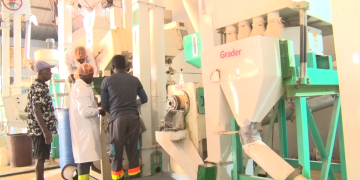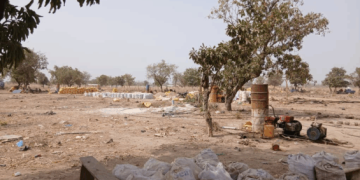The Food and Beverages Association of Ghana (FABAG) has raised fresh concerns over what it describes as an unprecedented surge in smuggling activities that is destabilizing Ghana’s rice and sugar market, threatening local industries, and depriving the state of significant revenue.
In a letter addressed to the Commissioner-General of the Ghana Revenue Authority (GRA), FABAG warned that illegal consignments of rice and sugar are increasingly entering the country through unapproved routes, particularly along the Aflao and Elubo borders.
The association said the unchecked influx has pushed legitimate importers and local producers to the brink, creating unfair competition and distorting market prices.
According to FABAG, the state is losing millions of cedis in import duties and taxes due to sustained smuggling operations, which the group attributes partly to bureaucratic delays and weak enforcement.
“For years, we have sounded the alarm, provided evidence, and called for decisive action. Yet responses have been slow, and smuggling has now reached unprecedented levels,” FABAG stated.
The association questioned who benefits from the continued negligence, noting that law-abiding businesses are being undercut despite complying with tax and regulatory obligations.
A major driver of the illegal trade, FABAG explained, is the wide duty differential between Ghana and its neighboring countries, which encourages traders to bypass official channels in favor of cheaper rates elsewhere.
FABAG’s Proposed Interventions
The association called for immediate, coordinated action to curb the rising threat, outlining several measures for government consideration:
- A nationwide crackdown led by the GRA Customs Division to dismantle smuggling networks.
- Overhaul of border management systems, including digital monitoring at key entry points.
- Public disclosure of enforcement outcomes to ensure transparency and accountability.
- Stronger collaboration between the Ministry of Trade, National Security, and border patrol agencies.
- A review and adjustment of import taxes and tariffs to create a level playing field for compliant traders.
FABAG described smuggling as “economic sabotage,” warning that the formal food import industry and local rice production could collapse if the trend continues. Such an outcome, the group said, would rob the government of vital revenue and undermine growth in the agricultural sector.
Call for Government Action
The association urged the government to demonstrate leadership by tightening trade enforcement, protecting consumers, and safeguarding national economic interests.
“The time to act is now,” FABAG emphasized. “Ghana deserves transparent, robust enforcement measures to combat illicit trade.”
FABAG pledged to continue working with stakeholders across the private and public sectors to promote a fair and accountable trade environment that supports both national revenue mobilization and consumer safety.
Source: www.kumasimail.com




































































